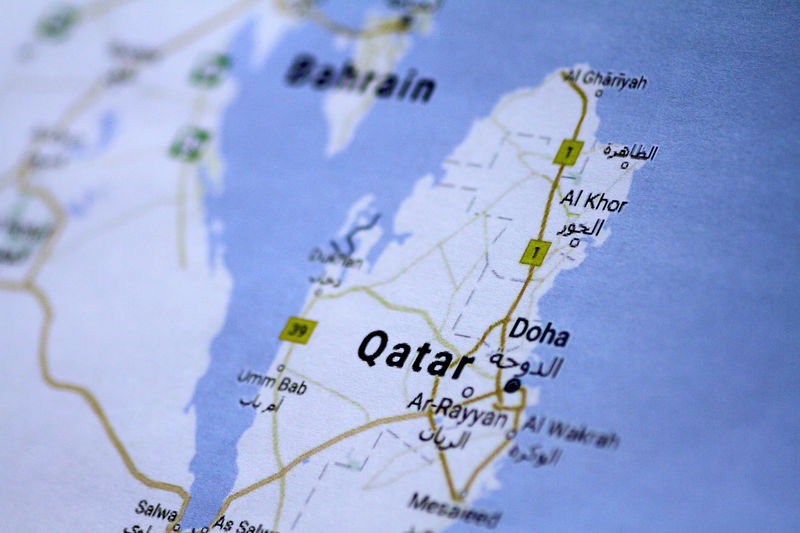(Bloomberg) -- When Qatar shocked the oil world on Monday by announcing plans to quit the OPEC cartel after 57 years, its energy minister said the decision was taken for "technical" reasons.
That story didn’t last long. A few hours later, a leading member of the country’s ruling family used Twitter to blast the Organization of Petroleum Exporting Countries, a group where Qatar was once a diplomatic force despite being a relative minnow in oil production terms, accounting for less than 2 percent of total output.
"The withdrawal of Qatar from OPEC is a wise decision, as this organization has become useless and does not bring us anything," said former prime minister Hamad bin Jassim bin Jaber Al Thani. "It is just being used for purposes that harm our national interest.”
His real target was Saudi Arabia, by the far the biggest producer inside OPEC. For decades the kingdom’s power was cloaked in a desire for consensus that saw the group through wars, sanctions and revolutions. But the more aggressive foreign policy pursued since the rise to power of Crown Prince Mohammed bin Salman drove Qatar out.
The prince’s 2017 decision to isolate his Gulf neighbor politically and financially meant there was very little upside to Qatar remaining in the group. There’s little expectation other countries will follow soon, but the kingdom’s willingness to drive a fellow OPEC member toward the exit is more evidence the oil relationship that really matters is between Riyadh and Moscow.
"The longstanding Saudi-led economic and political boycott of Qatar is bound to have played a large part in the decision," said Ashley Kelty, an oil and gas analyst at Cantor Fitzgerald Europe.
As Qatar was finishing up plans to leave, Russian and Saudi officials were meeting in Moscow to hammer out a bilateral deal to extend the so-called OPEC+ agreement first struck in 2016. That pact turned around the oil market, but depended so heavily on the world’s two largest exporters that others felt like bystanders.
"There is a sense of frustration prevailing, especially among small producers,” said Hossein Kazempour, Iran’s OPEC governor, who has represented Tehran’s interests at the cartel for decades and been a consistent critic of Saudi oil policy.
Even the larger OPEC members can do little to influence decisions. Iran’s production is constrained by U.S. sanctions. Venezuela, a founder member and once a major force, has been undone by years of economic crisis and collapsing output. Libya’s oil industry has experienced prolonged turbulence since the fall of Muammar Qaddafi’s regime in 2011.
To analyze the production of different OPEC members, click here.
Though not part of OPEC, Russia has given Saudi Arabia a partner with equal weight in the oil market and the political will to deliver on its promised cuts. On Saturday, President Vladimir Putin gave his blessing to continuing the relationship after discussions with Prince Mohammed at the Group of 20 summit in Buenos Aires.
“There is no final decision on volumes, but together with Saudi Arabia we will do it,” Putin told reporters. “And whatever number there will be based on this joint decision, we agreed that we will monitor the market situation and react to it quickly.”
Oil responded to his comments by jumping the most since June, rising as high as $62.60 a barrel in London on Monday morning.
Traders were relieved that a new deal was on the cards because it would undo a serious misstep in the otherwise successful Saudi-Russia partnership. After eliminating the global supply glut that built up between 2014 and 2016, the two nations anticipated that U.S. sanctions on Iran would create shortage and started rapidly boosting production in June.
In November, after Moscow and Riyadh had added about 1.4 million barrels a day to the market, President Donald Trump offered surprise sanctions waivers to buyers of Iranian crude, and traders got nervous about the outlook for demand in emerging markets. The end results was the worst monthly price slump in a decade.
Sharing the Burden
There’s still plenty of work to do. Energy officials from both countries haven’t yet agreed how to share the burden of cuts. Both Russia and Saudi Arabia are producing near record levels above 11 million barrels a day, but Moscow proposed reducing it’s output by no more than 150,000 barrels.
With the market expecting a total cut among the OPEC+ group of more than 1 million barrels a day, the Saudis want Russia to shoulder a greater share of the burden, according to people familiar with the situation, who asked not to be identified discussing private talks.
There are only two days until Russia and other allied producers begin their Vienna meetings with OPEC. Any deal will require a sign off from Putin and Prince Mohammed. The new reality of the oil market is that the decision of those two leaders will be far more consequential than Qatar’s decision to walk out.
"Qatar has minimal spare capacity so its exit won’t affect the volume of oil supply in the market,” said Anne-Louise Hittle, an oil analyst at industry consultant Wood Mackenzie Ltd. “The smaller nations of OPEC have a relatively quiet role in the group’s decision making.”
